Lung Cancer Is Not Just For Smokers
What would you say if I asked you what the leading cause of lung cancer is? Smoking, right? That's easy.
What would you say if I asked you what the second leading cause of lung cancer is? Something smoking-related?
No, guess again.
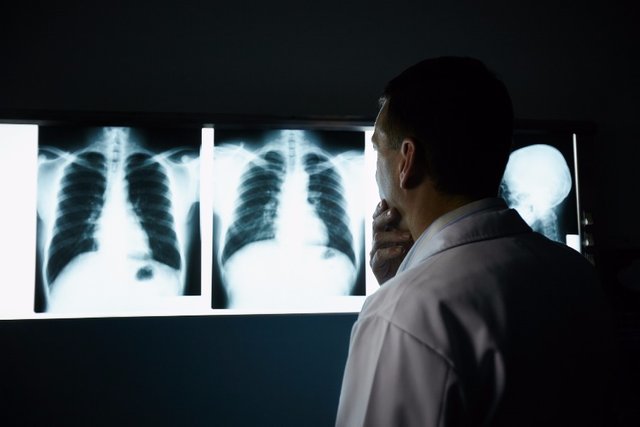
According to the National Academy of Sciences, Environmental Protection Agency, and World Health Organization, radon is the second leading cause of lung cancer in both smokers and non-smokers alike. For non-smokers, it is actually the leading cause, followed by secondhand smoke.
What is Radon and where is it found?
Radon is a radioactive gas that is produced from the natural breakdown of uranium in soil. Due to its radioactivity, radon can spontaneously decay and form other atoms, known as radon progeny. These new tiny atoms, which are electrically charged, attach to dust particles that are easily inhaled.
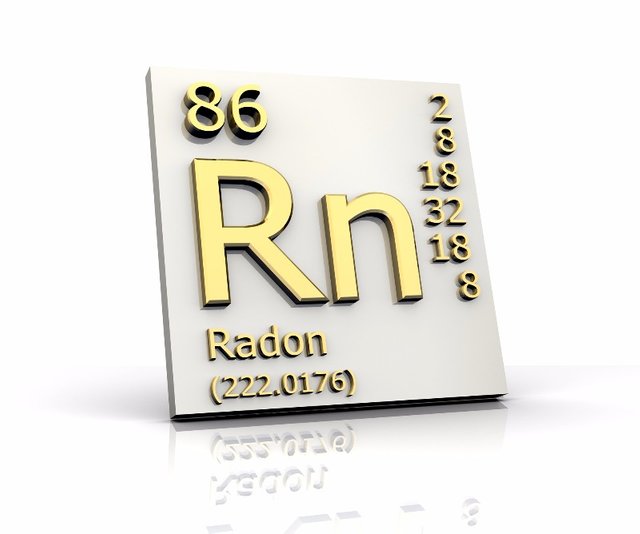
Since all soil contains some level of decaying uranium, Radom can be found anywhere in varying concentrations. In the United States, for example, it has been found in high concentrations in parts of every state. Higher levels have been found, however, in areas with large deposits of uranium, granite, shale, and phosphate.
How does it get into our homes?
Because radon is a gas, it moves upwards through rock fissures and air pockets in the soil. Due to pressure differences between indoor and outdoor air, homes with any cracks in the foundation, walls, or joints can act like a vacuum and draw radon gas up into the home. Once inside, the tiny radioactive particles caused by radon decay can attach to dust particles, which are then inhaled into the lungs.
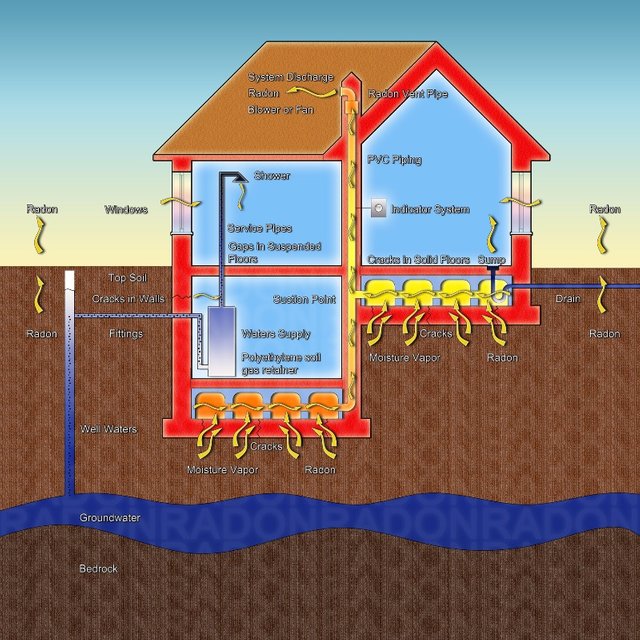
What does it do to our bodies?
Radon is a lung carcinogen that is responsible for roughly 21,000 lung cancer deaths a year. As it decays, radon emits tiny radioactive particles that damage the cells that line the lung. The link was discovered when scientists observed that underground uranium mine workers died of lung cancer at much higher rates. Concerned, researched turned to the effects of radon outside of the workplace. After a series of studies were conducted in the 1990s and 2000s, scientists confirmed that exposure to indoor radon results in an increased risk of lung cancer.
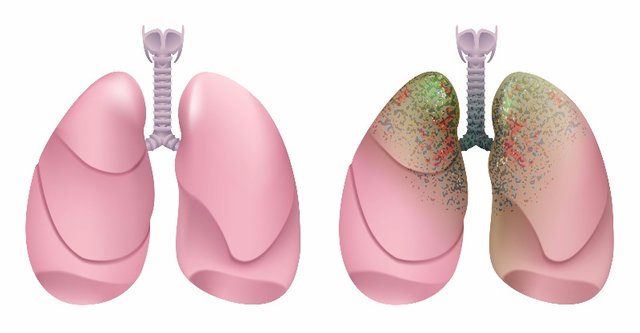
What can you do to be proactive?
Given the prevalence of indoor radon, the EPA recommends that everyone test their homes for concentrations of radon gas. If the level is 4 picocuries per liter or higher, homeowners are encouraged to install a radon reduction system in their home. The EPA has an excellent resource on radon mitigation available here.
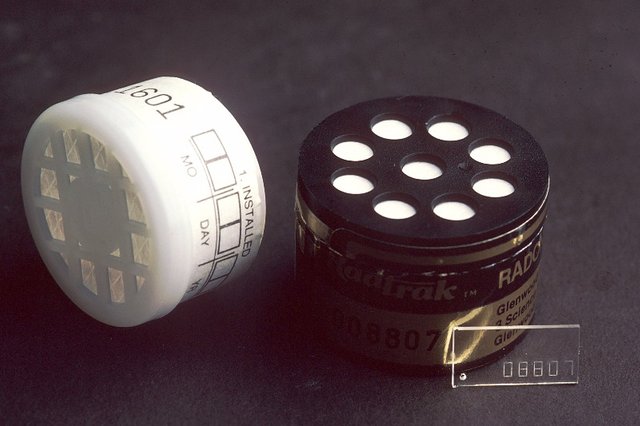
Additional Information
Local Radon Zones and State Contact Information
The National Radon Action Plan
World Health Organization's International Radon Project
I believe people should be protected from industry irresponsibility and wrongdoing, which is why my work as an attorney has focused primarily on environmental and mass tort litigation.
If interested, check out my previous posts:
PFOA
Lead
Secondary Exposure
@deviedev
This is a great article. Here's some food for thought.
My family were mostly "down winders".
The smokers in the family never developed lung cancer, eventually living to be very old.
The non-smokers died out during the "down winder blast" of the early 1990s when most down winders died.
I'm not saying that smoking had a "protective" effect for all, most or many. But in my family smokers generally live to their 90s and above, the non-smokers typically die in their 60s.
I have a theory that the tar in the lungs prevents radon, uranium and other carcinogens from coming in direct contact with lung tissue. While in the case of my family, we've managed to evolve some sort of factor that leaves us unaffected by mutagens in the tar.
Flip side of this is a higher than normal rate of disorders related to an over active immune system and a serious problem with blood pressure and blood clots. But cancer isn't a thing for most of us.
Not recommending anyone take up smoking. But I do wonder how much science on this subject is based on assumptive bias vs actual hard numbers that take into account all factors. For example if you examine the raw data and not someone's interpretation, it demonstrates your greatest risk of developing lung cancer isn't smoking or exposure to second hand smoke, it's living in a densely populated area where levels of pollutants in general are much higher.
Highest concentration of centenarians in the world are found in Nagaski followed by Hiroshima and 30 of the worlds top 30 oldest people are Japanese.
https://en.wikipedia.org/wiki/List_of_supercentenarians_from_Asia
Most of whom are regular smokers.
Not saying smoking is harmful or protective per se, but it does look like evolution has begun to select for people who are not susceptible to cancer from environmental radicals.
Maybe a genetic tendency for cancer, causes cancer and the environment just works as a trigger to push you over the edge.
@williambanks Downwinders, wow. I would love to pick your brain about that sometime.
Let me start by saying that I am not an epidemiologist, I am just familiar with the studies concerning environmental contamaninants because of my work in toxic torts. I agree--there are certianly many factors, including environmental pollution and genetics, that play a roll in the progression of diseases like cancer.
We know that cigarette smoke is comprised of a number of carcinogens that, when inhaled, can bind to DNA and create DNA adducts, which are pieces of DNA bonded to a carcinogen (think formaldehyde, arsenic, ammonia, etc). Our body has repair processes that are capable of removing adducts and restoring DNA, but failure to remove them can lead to permanent mutations . . . and so on and so forth. So, while your family's repair processes may be able to handle smoking, others' might not. Nothing is guaranteed, though, so it's a roll of the dice.
@deviedev
Of course, I completely agree. I just wanted to show the other side of that which is that if smoking ain't gonna kill ya. Nothin will :)
I'd be glad to talk to you about downwinders anytime you want. You have to keep in mind I'm a child of the 1970s so it was my parents, my grandparents, my aunts, uncles and cousins etc that all died off in a largish batch from the late 1980s until the mid 1990s. We eventually adopted the motto that "The surest sign there would be a funeral next week was that there was a funeral the previous week". This process went on and on and on, until we literally just ran out of people to bury.
Last ones left standing all seemed to be smokers.
That was also the time frame I was coming of age. Smoking weed, experimenting with drugs and reading everything from Neil Gaiman to Stephen Hawking to figure out, what all this was, that was going on around me. So a lot of my world view is framed in by all of that.
It's not a roll of the dice though, it's genetic russian roulette. :D
Great tips! Also have your home checked to make sure you don't have asbestos. I think asbestos is or used to be a leading cause of lung cancer too. My uncle died of asbestos lung cancer about 8 years ago he was a real estate agent and used to work on houses a lot, it is nasty stuff.
I am sorry to hear that. Asbestos are very nasty, indeed! I could spend a week talking about the stuff. Luckily, they aren't used as often, but even asbestos remediation creates a risk of exposure.
@deviedev
Very interesting.
On a related note; I never really understood how they can determine the cause of cancer. I mean what is "second hand smoking" really? We breathe crap all day, from polutants in the street, the barbeque grill emissions, factory chemical fumes of all kinds. Cigarettes are just as versatile in their chemical compounds as many of these sources.
And really, radon is everywhere. I mean, everywhere on earth. It's like saying "breathing causes cancer". I am really sceptical about this.
I hear you, I am a skeptic myself. Radon is everywhere, but so is the sun when it's shining...and we now know (hopefully) it's a good idea wear sunscreen to protect against UV rays, which cause skin cancer.
Scientists conduct epidemiological studies to determine the linkage between exposure and cancer (and other diseases). For radon, the studies began after noticing high rates of cancer in uranium miners.
well yeah but correlation =/= causation . There are so many radioactive things around us it is impossible to determine causality exclusively for one
Modifying effects from other factors are usually taken into account. Excerpt from an article published by the National Academy of Sciences in 1999:
Don't get me wrong, there are a lot of pollutants as well as radioactive material in the enviroment, and not everyone will die of cancer. But if a strong correlation is found and there are low-cost ways to increase your chances of not getting cancer, might as well give it a shot, right?
I live in the Radon capital of the US (Denver, CO). Good thing I have cancer coverage through AFLAC.
I have seen the claim on second hand smoke before but have seen no statistics backing that. Interesting fact on radon though. A lot of radon gas in the greater blackhills area
Here are some statistics on secondhand smoke.
Thank you I did not see much backup on the cdc reports and do not really trust the cdc anyway 1. cdc in the early 60s posted that smoking did not cause cancer. 2. there is more evidence connecting sids to vaccines then smoking by far but they wont acknowledge that and have been caught cooking the books. seems the cdc is more a propaganda wing than a science organization.
What would be sufficent backup for you?
I like to review the actual studies along with the peer review. I did not check every link but the ones I did just led to conclusions. At this point any study coming out of the CDC must be suspect because of there pattern of behavior where they seem to follow the money as opposed to the science. I do appreciate your article just challenging the science. I have seen a lot of claims on second hand smoke but they build a lot of conclusions based on a few studies that do not show any thing more than a rise in certain chemicals I am a non smoker. Quit about 20 years ago. Think the second hand smoke thing is way out of spectrum with reality. I appreciate you're article. Just challenging the science. Chlorine gas also has a pretty good link to lung cancer. Read those studies years ago can't quote them now. Appreciate the article and the conversation!
VERY INTERESTING
Interesting indeed. People living in New Hampshire especially. It is not called the granite state for nothing. Some homes are built on top of or near large areas or rocks of granite have far more radon exposure than normal.
I am following You
We Share same Interests
Please Consider Following Me Back
Let Us Minnows become Dolphins And Then Whales
Geez, thanks for the heads up. I better get a test kit. You may have saved my life :)